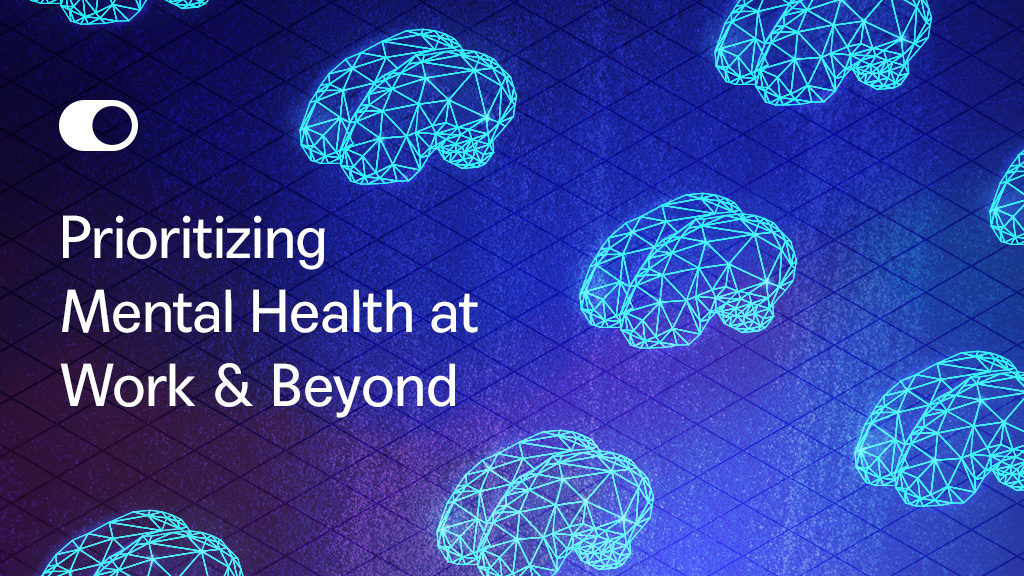
Prioritizing Mental Health at Work & Beyond
Work-Life Balance
We spend so much of our time at work. And while it can be a source of purpose, fulfillment, and even joy, it can also cause stress and anxiety that eventually lead to burnout. Poor mental health affects your productivity, engagement, communication, and other day-to-day functions which will negatively impact your experience at work, and everywhere else.
If your job offers mental health resources like stress management or therapy, this can be a great place to start. Learning how to achieve your version of the ever so elusive work-life balance will likely be the best long-term approach to take care of your mental health at work—and in all areas of your life. Two key strategies to get there are practicing value-driven decision making and setting boundaries.
Making Value-Based Decisions
One of the most effective mental health self-care practices you can start is making decisions based on your values vs. just the facts and/or feelings of the situation. Making value-based decisions is proven to help people feel more content and fulfilled. It also helps you build trust with and in yourself.
The first step is to figure out what your values are. Think about what’s important to you—family, career, free time, travel, etc. It can be anything! Then decide which are the most important, and start using that to inform your decisions. The more you do it, the easier it will be. If you’re struggling to figure out your values on your own, you can always connect with a Mental Health provider for guidance and support.
Setting Boundaries: The Basics
Think of boundaries as another form of mental health self-care. Boundaries are limits and rules we set for ourselves in relationships. They can apply to the relationships we have with others in our personal and professional lives, or even our relationship with ourselves. They keep us safe and help us protect our time, energy, and values. Boundaries can be emotional, physical, financial, sexual, mental. They can be big or small. And they can apply to all kinds of relationships including work, family, friends, and romance.
Some examples of boundaries are:
Just like value-driven decision making, the more you practice setting boundaries, the easier it will feel. You may even notice that as you start to make more value-based decisions and trust yourself more, it becomes easier to set and uphold your boundaries. If you need support, a therapist can work with you to figure out your boundaries and practice what to say.
If you need more mental health support or are interested in exploring additional mental health resources, connect with a provider today.
About the Reviewer

Michael oversees the organization’s behavioral health services nationwide, and works within an integrated, team-based care model to establish trusted relationships with his patients and their extended care teams to achieve optimal outcomes.He has spent his years at Crossover establishing, implementing, and maintaining a behavioral health model of care based on approaches that are progressive, sustainable, and scalable. He oversees the mental health program culture and communication, has large responsibility for hiring and onboarding new team members, in addition to providing direct clinical services.